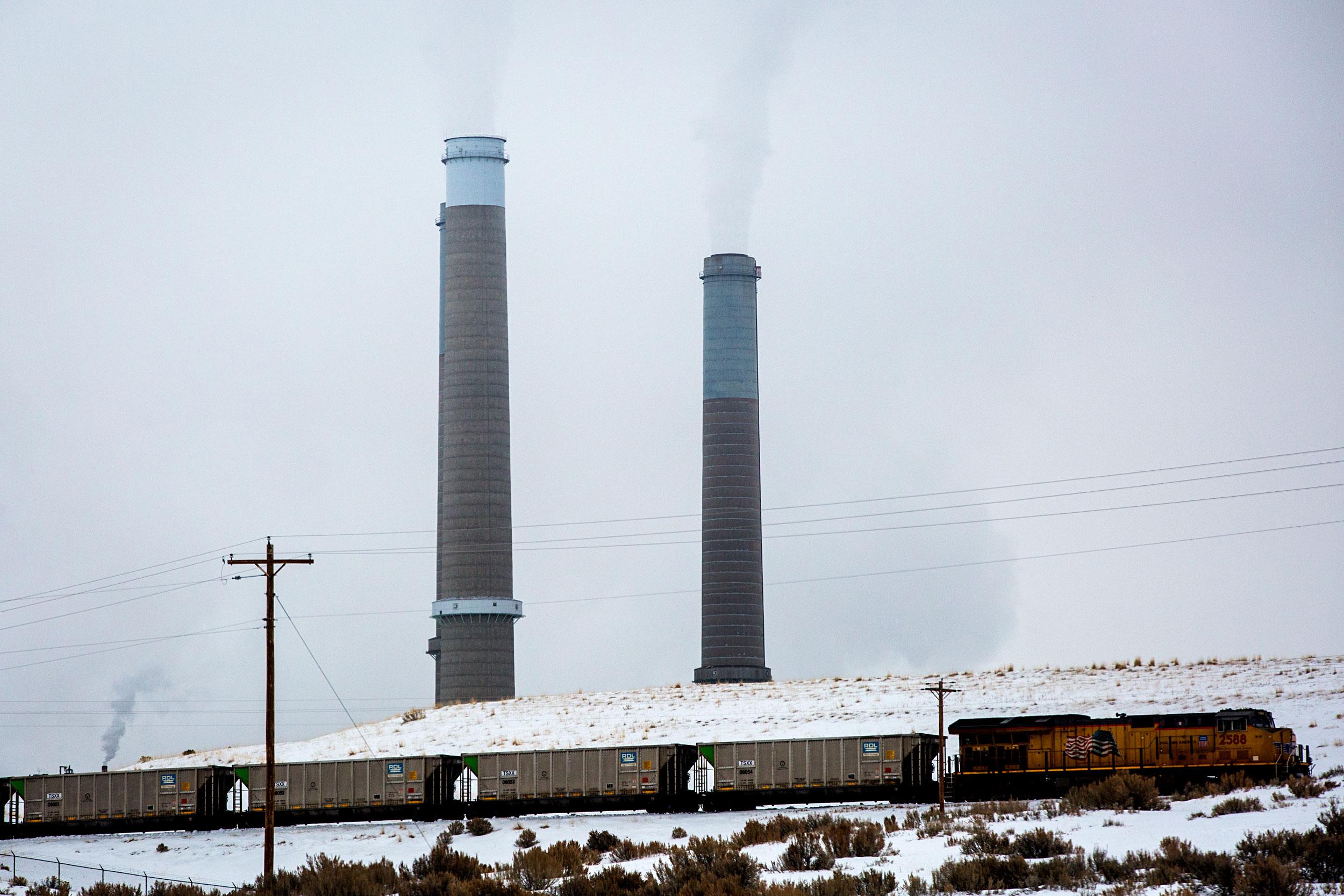
Members of more than 50 Colorado environmental groups, including the Colorado Sierra Club and the Environmental Defense Fund, sent a letter to members of Gov. Jared Polis’ air quality control commissioners ahead of their meeting Thursday.
While they’re glad Colorado approved ambitious goals to combat climate change into law in 2019, they agree the state is nowhere close to meeting them.
“Our organizations may differ in our theories of change, membership, tactics, and even how we believe we can close this emissions gap,” it reads. “However, we are united in our commitment to meeting or exceeding the emissions goals and that the Air Quality Control Commission must take immediate, urgent action to put Colorado on track.”
The meeting marked the formal beginning of a rulemaking process to hit the new ambitious climate targets. The plan calls for a 26 percent reduction in emissions by 2025, 50 percent by 2030 and a 90 percent cut by 2050. Each is measured against a 2005 benchmark. It’s up to the state’s Air Quality Control Commission to write regulations to reach the goals.
Two groups — Western Resource Advocates and the Environmental Defense Fund — commissioned an independent analysis of Colorado’s potential greenhouse gas emissions. It found the commission is up against an enormous task.
While Colorado’s overall emissions have begun to decline in recent years, the analysis, conducted by M.J. Bradley and Associates, predicts the state won’t meet its emission deadlines even when accounting for plans to close several coal-fired power plants and rules to encourage the adoption of electric vehicles. Without more ambitious actions, the group estimates Colorado’s total emissions are on track to exceed the 2030 goal by 75 percent.
A separate consulting group offered a different picture at Thursday’s meeting. Energy and Environmental Economics, which is working on the state’s official roadmap to meet the emission goals, offered their own draft analysis of Colorado’s contribution to climate change. It found the state would be halfway to its 2030 goal when accounting for recent climate policies. A final version of the roadmap is due by September following a public comment period.
“In our opinion, there’s still an incredible amount of work to be done,” said Stacy Tellinghuisen with Western Resource Advocates. “The gap is quite sobering.”
Many activists think it isn’t sobering enough.
The Colorado Coalition for a Livable Climate, which represents 33 groups across the state, released a separate statement that said the state’s current goals fall short of the challenge laid out by UN scientists in their latest climate report. To achieve safe levels of warming, the groups said Colorado should adopt even more ambitious goals for 2030 and 2050.
During the meeting, the AQCC did propose two new rules to assist the effort. One lays out how the state will require emitters to report their greenhouse gas emissions. The other would require a reduction in hydrofluorocarbons--a potent greenhouse gas sometimes used in aerosol, foams and refrigerators. Formal rulemaking on the proposals is scheduled for May.
While Gov. Polis has encouraged rapid action to confront climate change, he’s also warned against certain types of regulation. During negotiations on the emissions bill, Polis clashed with Democratic House Speaker KC Becker about whether the law should include fines and deadlines to keep industries on pace.
More recently, Polis penned an op-ed in the Pueblo Chieftain that said the state couldn’t confront climate change through a “single rule or edict.” He added Colorado should avoid a “cap-and-trade” policy, which puts a declining cap on emissions and allows businesses to buy or sell the permission to pollute.
“That'd be unworkable in the state because we don’t benefit from the same economies of scales as a nationwide carbon market and could shift even more pollution to less wealthy communities,” wrote the governor.
Polis said he’d rather see regulators work with companies and communities on tailored solutions. It’s another mammoth challenge for his air quality regulators, which he’s already tasked with guiding a complete transformation of Colorado’s economy.
But a spokesperson with the governor said the approach has already put the state on its way toward its 2030 goal after only a year in office.
“We’re excited by the progress our administration will be able to accomplish through its commitment to deploy targeted strategies sector by sector to reach these voluntary goals. The governor looks forward to working with legislators and stakeholders to continue this important work to protect the Colorado way of life.”
Editor's Note: An earlier version of this story incorrectly stated the deadline for the 90 percent reduction target, which is 2050.








